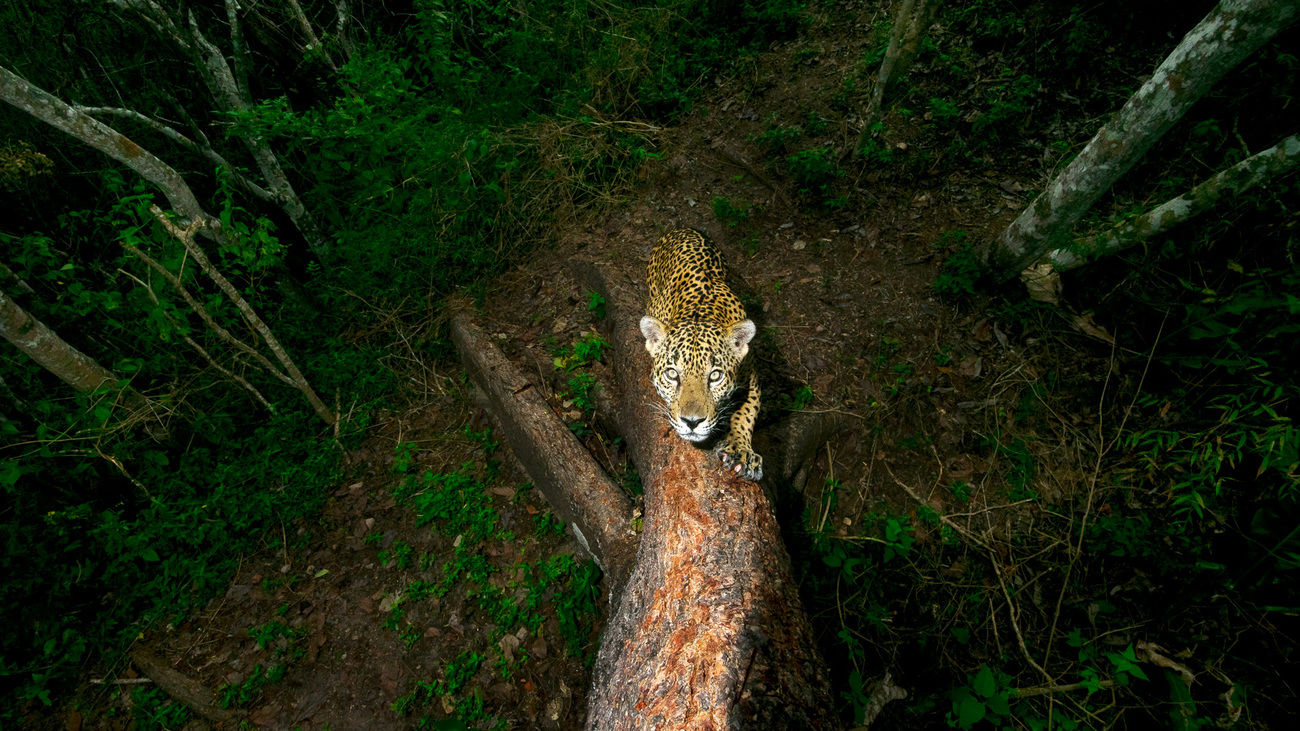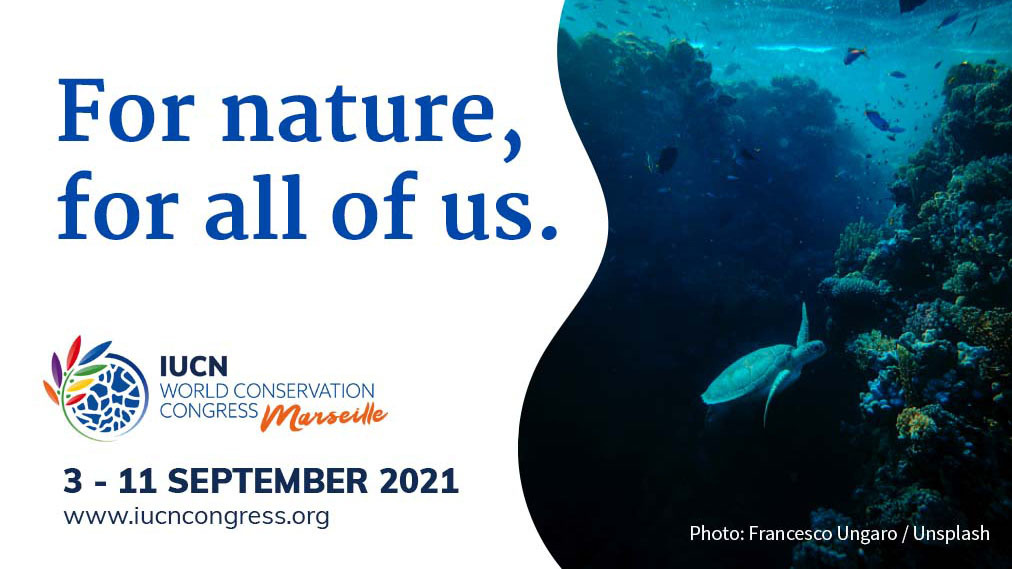Policy Conventions & Agreements - Global
Protection for wildlife & habitats is preserved in global agreementsworking together for a stronger future
working together for a stronger future
10 September 2021
Good news from the IUCN World Conservation Congress (WCC) in Marseille today! All IFAW-supported Motions considered by the WCC have been successful. An IFAW co-sponsored Motion aimed at better protecting our ocean environment and marine life was adopted. This motion urged all States to develop and adopt such a high seas agreement to better protect areas beyond national jurisdiction and to develop requirements for the assessment and management of the impact of human activities on high seas biodiversity. IFAW believes the successful adoption of this Motion will send a message to world leaders about the need for rapid conclusion of a robust strong new Agreement that will advance conservation and management of biodiversity in an area covering nearly half the planet.
Elsewhere, additional Motions to encourage better management of marine wildlife were successful as well. The WCC decided to take on work that aims to reduce human-made ocean noise and its harmful effects on marine species. It requested the development of a panel to better address anthropogenic underwater noise pollution and for the World Commission of Protected Areas to develop additional recommendations for a precautionary approach to reduce and limit underwater noise in marine protected areas (MPAs). In addition, IFAW supported a Motion adopted to reinforce the protection of marine mammals through regional cooperation. Adoption of this Motion encourages better regional cooperation for existing measures, as well as the development of new initiatives to better protect marine mammals from bycatch, active and discarded fishing gear, and collisions with ships.
Another successful Motion called for the development and implementation of an effective and comprehensive Post-2020 Global Biodiversity Framework, which IFAW believes is critical for the prevention of unprecedented levels of species extinctions, reduction in the effects of climate change, and maintaining and improving ecosystem area, integrity and connectivity of habitats for animals worldwide.
Finally, the IUCN WCC also accepted a proposal to prevent future pandemics through the One Health Approach, which integrates human, animal, and ecosystem health into decision making practices to reduce risk of zoonotic pathogen spillovers. While IFAW supported this motion out of principle, we were disappointed in the lack of ambition in this Motion, and the acceptance of continued risk of pathogen spillover. IFAW believes that all efforts must be taken to prevent pandemics at the source—which is in most cases the human/wildlife/environment interface. If we are to avoid future zoonotic pandemics, we should be seeking to reduce all risks, no matter how small. Sadly, this Motion and this Congress have fallen short in this area. However, we were very pleased to see Vivek Menon, long-time senior advisor to IFAW and founder/Executive Director and CEO of Wildlife Trust of India, elected as Regional Councillor for South & East Asia. We also welcomed the appointment of new President Razan Al Mubarak - who becomes only the second woman to lead IUCN in its 72-year history. We look forward to working with them and all new council members over the coming period.

9 September 2021
The jaguar is listed in the IUCN Red List as ‘near threatened’, with recent years having seen a spike in the trafficking of jaguar parts in South America, often destined for Asia. It is therefore really important to prioritize the protection of jaguars and their habitats, as well as the need for community engagement, and for governance and law enforcement to implement stricter measures to control the trafficking of this species. Through the adoption of Motion 106—Continental conservation priority for the jaguar (Panthera Onca), international attention was raised to the predicament of the jaguar that will hopefully result in a sense of urgency to come into action for its protection.
“The jaguar is the top predator and a cornerstone species in South, Central and North America. In some range states the species already disappeared. In others the numbers of jaguars are declining, sometimes to critically low numbers. Without strong conservation measures to better protect the species from poaching, habitat loss and conflict with communities, the future of the jaguar is bleak,” said Rikkert Reijnen, Senior Advisor Conservation at IFAW. Today’s session focuses on how IUCN NL, IFAW, Earth League International (ELI), and other partners have joined forces for Operation Jaguar—a project funded by the Dutch Postcode Lottery that focuses on tackling the trafficking in jaguar products in Suriname, Guyana, Peru and Bolivia. At IFAW, we address how we build capacity by empowering law enforcement officers with tailored train-the-trainer workshops and on-the-job mentorship, and work with prosecutors and judges to ensure adequate follow-up of criminal cases.

7 September 2021
Over the weekend, the WCC continued with enthusiastic discussions and concrete plans for action on conserving animals and the planet. Several important initiatives were launched, including new financing for conservation in Southern Africa, as well as the Legacy Landscapes Fund, which aims to manage and protect biodiversity hot spots. Additionally, Germany officially launched the International Alliance in Health Risks in Wildlife Trade, which aims to take a One Health approach when managing the global trade in wildlife—one that focuses on the intersection of human, animal and environmental health. Each of these initiatives will complement IFAW’s work in landscape conservation and our aims to ensure the wildlife trade does not present further opportunities for the next pandemic to emerge.
Emergency Motions (Motions on topics that have emerged since the delayed 2020 WCC and require immediate attention) were also published on Monday. These new topics include the protection of a majority of the Amazon, ensuring additional funding for IUCN assessments to adequately monitor the status of endangered species, and taking a global One Health Approach to prevent future pandemics. IFAW and a number of other IUCN Members also submitted an emergency Motion looking specifically at the pandemic risks from wildlife trade and urging greater action in this area, but IUCN deemed it inadmissible. We are appealing this decision, given this emerging issue is consistent with the concept of new and urgent issues that the emergency motion process is meant to address. It would be deeply disappointing if the IUCN prevents its members from discussing the pandemic risks wildlife trade presents when we are in the midst of a pandemic whose likely cause is the trade in wildlife. Voting on Motions begins tomorrow, beginning with a vote to determine whether voting moves fully online. This is a current point of contention in a Body that aims for equitable representation but due to the pandemic not much more than 50% of IUCN Members have been able to attend or send proxy votes to this Congress.
Additional updates to come.
2 September 2021
At a time of multiple converging crises of biodiversity loss and climate change, it is rare that a single entity has the capacity to address the wide-ranging number of environmental issues that face us today.
The IUCN World Conservation Congress (WCC) aims to do just that. Meeting September 3-10 in Marseille, France, the IUCN WCC gathers together governments, scientists, NGOs, and Indigenous Peoples’ groups to provide pathways towards solutions on seven themes that encompass almost all aspects of environmental health.
IFAW staff are participating to support the adoption of Motions that will better protect animals and their habitats worldwide. Ranging from the reduction of ocean noise to halting biodiversity loss to the encouraging the development of an agreement that protects life on the High Seas, adoption of these Motions will bolster global commitments and set clear guidance for governments, international bodies and NGOs alike to cooperate, coordinate and enact better policies to protect nature.
The WCC will also host events and formal discussions on topics such as jaguars and ocean noise, where IFAW staff will be contributing to the conversations and outcomes.
Watch this space for continued updates on our discussions, presentations and adoptions of key decisions that will lay the groundwork for future conservation successes.
Related content
Our work can’t get done without you. Please give what you can to help animals thrive.